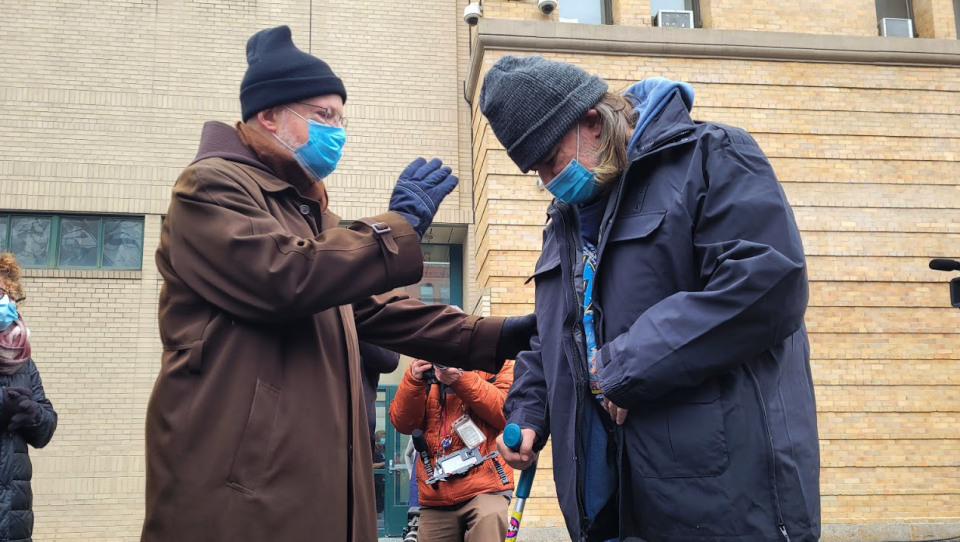Hundreds of new supportive housing units will open in Greater Boston and Southern Massachusetts, through the work of Pine Street Inn and Father Bill’s & MainSpring, two organizations working to combat homelessness in Massachusetts.
Lyndia Downie, president and executive director of Pine Street Inn, and John Yazwinski, president and CEO of Father Bill’s & MainSpring, joined Boston Public Radio Thursday to talk about the latest developments in combatting homelessness in the region.
More Local News
Rather than just improving homeless shelters, Downie and Yazwinski are working to grow what they call supportive housing — housing that is both affordable and has support staff for people who are struggling with employment, rent, healthcare and more. Yazwinski said the need became even more dire during the pandemic, when shelters saw high COVID-19 positivity rates and social distancing was near impossible.
To create more supportive housing, Yazwinski’s organization purchased an underutilized hotel Brockton, and is converting it into permanent housing. Downie’s organization, meanwhile, is working on developing more than 200 units in Jamaica Plain.
“We're so excited to break ground, this is the biggest project for formerly homeless people in Boston ever,” Downie said. “It's permanent, and that's what we need right now, we've got enough transitions for people, we need to get them stable, and in a permanent situation.”
Yazwinski cited high success rates, saying that 93% of people who get into supportive housing are still housed three years later.
He recalled one woman who ended up homeless and unemployed after a divorce. “She got depressed, she started drinking, she was sleeping behind the dumpster,” he said. “Now she’s moving into housing.”
“Giving her her own key, gave her her own toothbrush rack,” Yazwinski went on. “It gave her that own place to close the door when you're having a tough day … and she continues to be doing well.”
Both Yazwinski and Downie cited political will and available funding to support homelessness as key reasons that have allowed them to expedite their housing projects, particularly with pandemic relief funds and major grants.
“The political will, it really is the most important thing. We face so much community opposition a lot of times,” Yazwinski said. “To do this in record time, in a year and a half shows, this is our moment in time, we should be able to do this now, across the state.”
Both groups said they fight “not in my back yard” sentiments, or “NIMBYism,” by engaging in dialogue with communities. “We hopefully start early, we reach out to community leaders and neighborhood associations,” Downie said.
“The thing is to show people that these are our neighbors, they’re from your community, maybe they went to your church or went to your school,” Yazwinksi added.
With funding available and political will behind supportive housing projects as a result of the pandemic, Downie and Yazinwski have hope for future housing projects. Pine Street Inn, Downie said, wants to add more than 500 supportive housing units in coming years.
Yazwinski told the story of his mentor, Father Bill himself, who welcomed homeless people into his church.
“I said, ‘What do I do every day, what is my job description?’” Yazwinski recalled. “He said, ‘Work on taking the sign down at the shelter.’ ... He wanted to end homelessness.”
Lyndia Downie is the president and executive director of the Pine Street Inn, one of the largest agencies serving homeless people and developing affordable housing targeted at homeless individuals in New England.
John Yazwinski is the president and CEO of Father Bill’s & Mainspring, which provides shelter, housing and homelessness prevention services to individuals and families in Southern Massachusetts.









